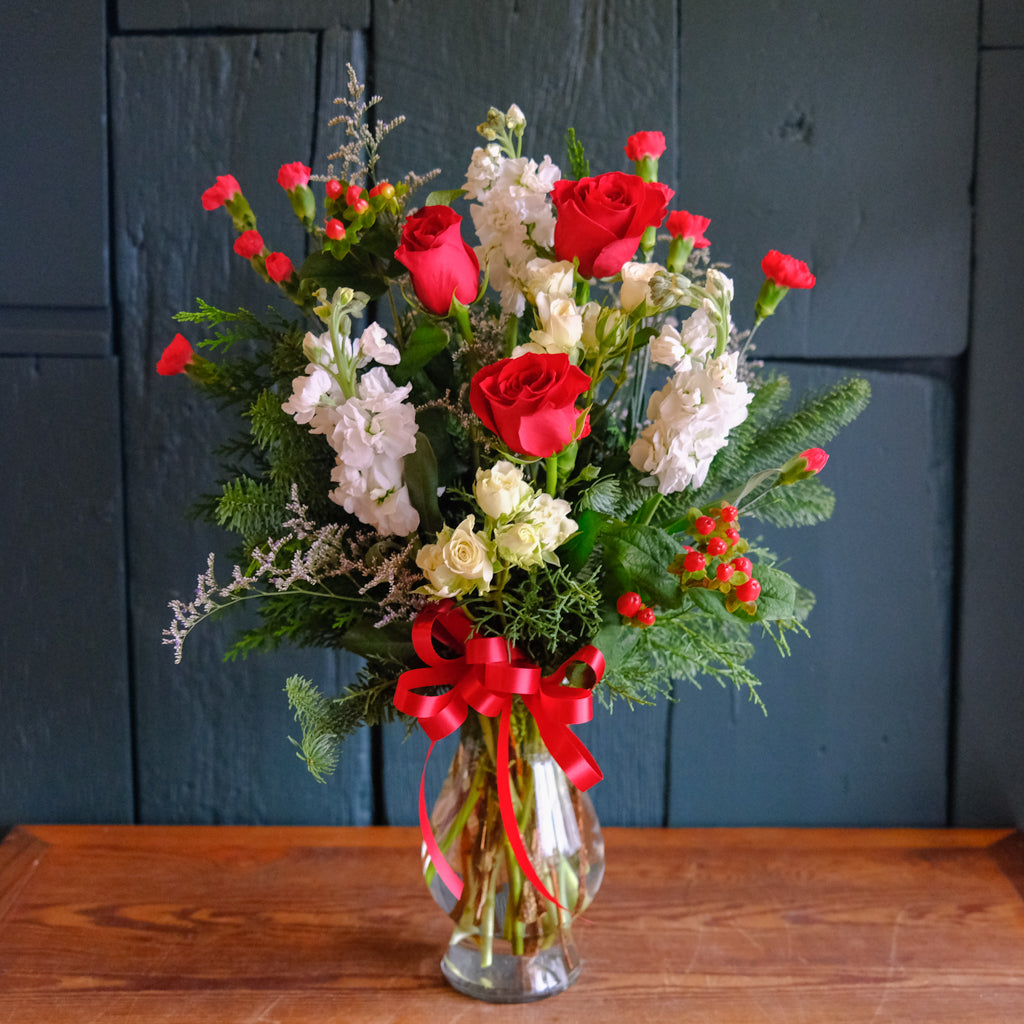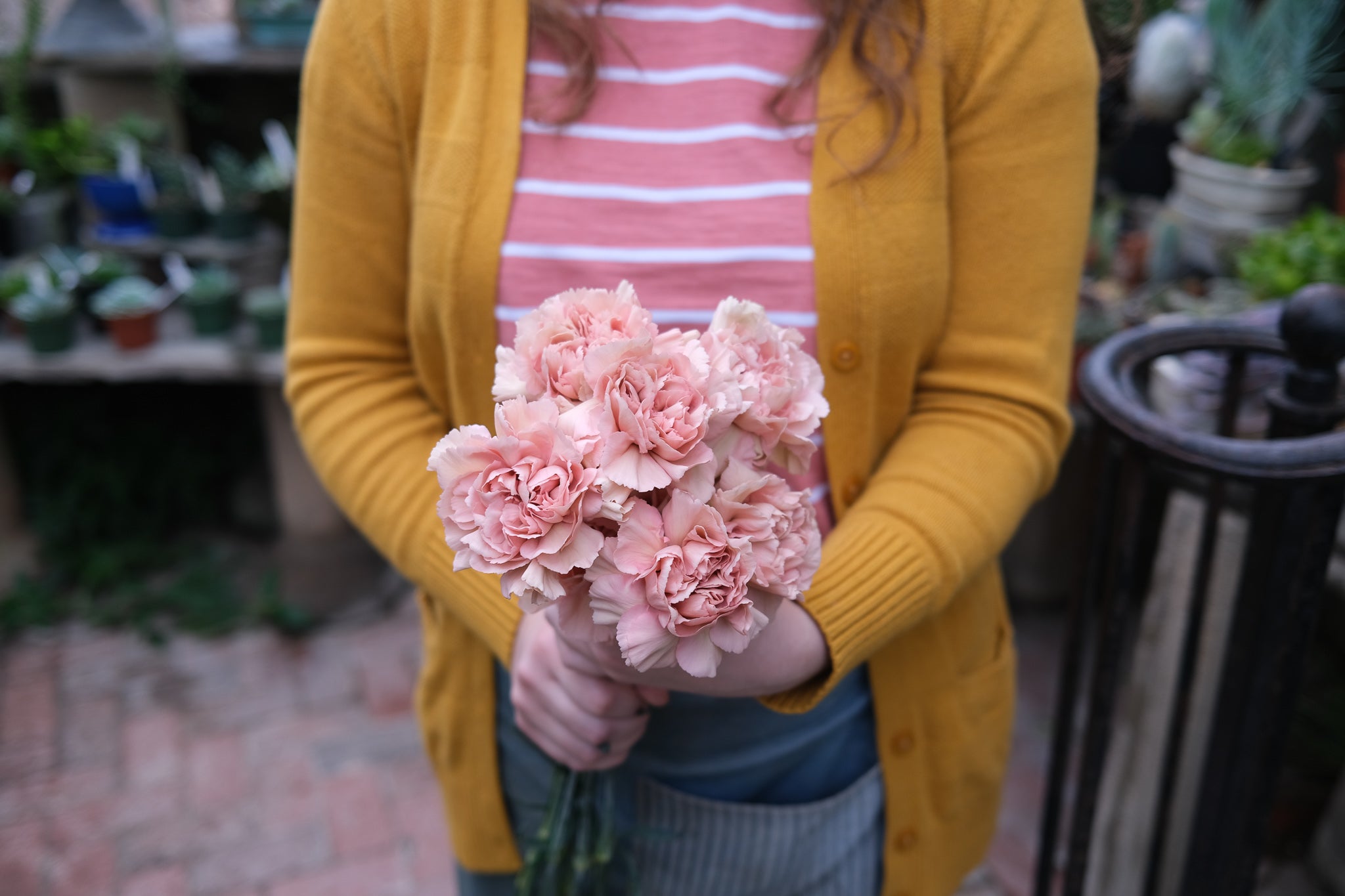I'm not sure when carnations started to get such a bad rap. Many people, however, seem to walk into our flower shop knowing that carnations are bad/tacky/fussy/dated/insert unflattering adjective of your choice. When I meet a person who likes carnations--much less one who requests them--it's a surprise.
I'm sure there are as many reasons to dislike carnations as there are colors of carnations. The most common reason I hear is that they're "cheap" flowers. There's certainly no denying that carnations are sturdy and long-lasting, which makes them cost effective for growers to produce and ship in bulk. This isn't necessarily a bad quality--the fact that carnations are sturdy also means that they have a higher chance of arriving from abroad in good condition than a more delicate flower, like an anemone, does.
There's something so lavish about delicate flowers, though. A restaurant that regularly fills its tables with poppies and sweet peas signals that it can afford to replace those flowers throughout the week. Huge wedding installations full of gardenias and garden roses feel opulent because we know they won't last until tomorrow--and it doesn't matter. It's the floral equivalent of designer shoes you only wear once.
A carnation is a flower that lives with you for a while. I once kept a carnation in a vase for three months, and I only threw it away then because I felt like I ought to, not because it looked especially bad. Their petals are soft and ruffled almost like a peony's--but without a peony's tendency to dissolve into what I affectionately call "sad wet tissue paper state". Some carnations have more jagged edges to their petals while some are more rounded. And the array of colors available is simply astounding.
I'm not here to defend dyed carnations (though I'm sure someone out there adores them). Carnations naturally come in every color of the rainbow except blue; within that color wheel, there are so many gradations that I feel like I'm constantly discovering new ones. Delicate blush or champagne. Rich burgundy. Pistachio green. All of them ruffled and delicately scented and ready for weeks of enjoyment.
It's entirely possible that I've only come to enjoy carnations so much because nobody else likes them. But carnations also remind me that beautiful things don't have to be fragile. They don't have to be inaccessible or expensive. You can find them in grocery stores and in showstopping displays--anywhere, in short, that you decide to look for them.


